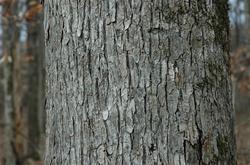|
Southern Conservation Partners shares the concerns expressed by many friends and defenders of the forest ecosystems of the southern U.S., which are currently being exploited and threatened by mass removal for export as wood pellet biofuels principally in Europe. Many of the forests being cut are already imperiled river bottomlands forests ecosystems that are critically necessary for sustenance of the environmental health of the southern U.S. region.The biofuel producing companies are “green washing” their activities and propaganda based on intentionally false and deceptive claims that cutting and burning trees on a mass scale is “carbon neutral” because the forests may regrow sometime in the long-term future and hence forests are a “renewable” resource. Most of the processing plants that collect, chip, and process cut trees in huge volumes for export are located in marginalized, economically distressed communities, and those industrial plants are operating at full capacity 24/7 and emitting huge quantities of airborne pollutants. The Southern Environmental Law Center, the Dogwood Alliance, and the National Wildlife Federation are leading defense actions to save our forests.
We recommend you watch this 30-minute documentary film: Burned: Are Trees the New Coal? In addition, the North Carolina Wildlife Federation and its coastal Island Wildlife Chapter recently presented an excellent, profoundly important webinar about this crisis. VIEW the recording of that webinar. Several other resources on this important issue: Wood Pellet Map Carbon Markets Article--How Marginalized Communities in the South are Paying the Price for “Green Energy” in Europe Forests are vital elements to our nation’s infrastructure and environmental health. Strong climate action rooted in justice has never been more urgent. Valuing standing forests is our best climate defense! Take the “Stand 4 Forests Pledge” HERE.
0 Comments
 Photo by Laura Cotterman Photo by Laura Cotterman The South’s forests encompass a broad range of ecosystems and landscapes and are home to many rare, threatened, and endemic species of plants and animals. Forest ownership and uses in the South have been changing dramatically in the early 21st century, raising questions about the future of our southern forests. A huge transition in forestland ownership has been occurring, with the forest products industry divesting about three-fourths of its timberland holdings in the southern U.S. in the ten years between 1998 and 2008. What are the implications for forest management and sustainability? How will forest land ownership in the South continue to change in the future? Private landowners hold 86 percent of the forested land in the southern U.S., with two-thirds of this area owned by families or individuals. The average size of family-owned forest holdings is small: only 29 acres (although 60% of family-owned forests exceed 100 acres in size). Two-thirds of these private landowners harvest and sell trees from their land. In recent history, much of the South’s forests were owned by big timber production industries. . . . |
When we see land as a community to which we belong, we may begin to use it with love and respect.... Conservation, viewed in its entirety, is the slow and laborious unfolding of a new relationship between people and land." There is in fact no distinction between the fate of the land and the fate of the people. When one is abused, the other suffers. From the PresidentSCP President Chuck Roe looked at land conservation along the route of John Muir's "Southern Trek." About ViewpointThis blog offers views of our Board and partners. We invite your viewpoint on the following questions: Archives
April 2024
Categories
All
|

 RSS Feed
RSS Feed